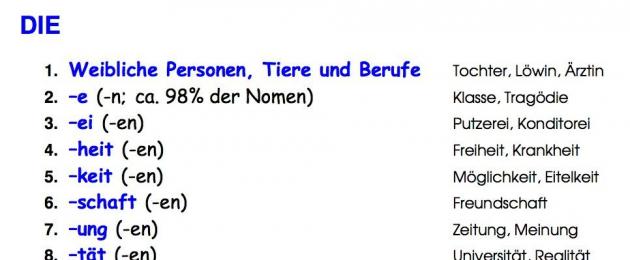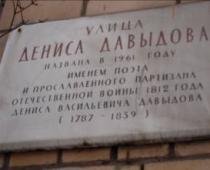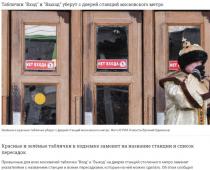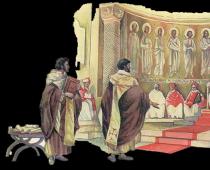A noun in German, as in Russian, has a gender category: masculine, feminine or neuter. At the same time, the gender of nouns in German and Russian often does not coincide. Therefore, nouns must be memorized with an article, which indicates the gender of the noun.
Remembering the gender of nouns is often difficult. However, many nouns have some features that help determine the gender of those nouns. The gender of nouns can be determined:
- according to the meaning of the word
- according to the form of the word
Masculine gender by meaning:
- male persons | der Mann (man) |
- male animals | der Bär (bear) |
- cardinal directions | der Norden (north) |
- Seasons | der Sommer (summer) |
- names of months | der Januar (January) |
- days of the week | der Montag (Monday) |
- times of day | der Morgen (morning), But die Nacht (night) |
— precipitation | der Regen (rain) |
- minerals | der Granit (granite) |
- stones | der Rubin (ruby) |
- names of mountains | der Harz (Harz) |
- names of lakes | der Baikal (Baikal) |
- alcohol | der Wodka (vodka), But das Bier (beer) |
- monetary units | der Euro (euro), But die Kopeke (penny), die Krone (crown), die Mark (mark) |
- celestial bodies | der Mond (moon), But die Venus (Venus) |
- names of car brands | der Opel, der BMW |
Masculine form:
-er | der Fahrer (driver) |
-ler | der Sportler (athlete) |
-ner | der Gärtner (gardener) |
-ling | der Lehrling (student) |
-s | der Fuchs (fox) |
Note: don't confuse the suffix -er in derived nouns with words whose roots end in -er: die Mutter, die Tochter, das Fenster, etc.
— Foreign words (mostly animate) with suffixes: | |
-ent | der Student (student) |
-ant | der Laborant (laboratory assistant) |
-ist | der Publizist (publicist) |
-et | der Poet (poet) |
-ot | der Pilot (pilot) |
-at | der Kandidat (candidate) |
-soph | der Philosopher (philosopher) |
-nom | der Astronom (astronomer) |
-graph | der Photograph (photographer) |
-eur | der Ingenieur (engineer) |
-ier | der Pionier (pioneer) |
-ar | der Jubilar (celebrant of the day) |
-är | der Sekretär (secretary) |
-or | der Doktor (doctor) |
Note: inanimate nouns with suffixes -ent, -at,-et can be either masculine or neuter: der Kontinent - das Patent, der Apparat - das Referat, der Planet - das Alphabet.
Feminine by meaning:
- female persons | die Frau (woman), But das Mädchen |
- female animals | die Kuh (cow), But das Huhn (chicken), das Schaf (sheep) |
- tree names | die Birke (birch), But der Ahorn |
- names of colors | die Aster (aster), But der Mohn (poppy), der Kaktus (cactus) |
- names of berries | die Himbeere (raspberry) |
- name of fruits and vegetables | die Birne (pear), But der Apfel (apple), der Pfirsich (peach), der Kohl (cabbage), der Kürbis (pumpkin) |
- most German rivers | die Elbe, die Oder, die Spree,Butder Rhein, der Main, der Neckar |
Feminine form:
— Nouns with suffixes: | |
-in | die Laborantin (lab assistant) |
-ung | die Übung (exercise) |
-heit | die Freiheit (freedom) |
-keit | die Möglichkeit (opportunity) |
-schaft | die Landschaft (landscape) |
-ei | die Malerei (painting) |
— Foreign words with stressed suffixes: | |
-ie | die Chemie (chemistry) |
-tät | die Universität (university) |
-tion | die Station |
-ur | die Kultur (culture) |
-ik | die Physik (physics) |
-age | die Reportage |
-ade | die Fassade (façade) |
-anz | die Ambulanz (outpatient clinic) |
-enz | die Existenz (existence) |
Note: there are also a number of nouns male ending in -e: der Kollege, der Russe, der Junge, der Name, der Gedanke, der Käse and several nouns neuter: das Ende, das Interesse, das Auge.
Neuter by meaning:
- names of children and cubs | das Kind (child), das Lamm (lamb) |
- metals and alloys | das Silber (silver), But der Stahl (steel), die Bronze (bronze) |
- chemical elements | das Chlor (chlorine), But der Schwefel (sulphur), der Phosphor (phosphorus) |
- continents | (das) Africa, But die Arktis (Arctic), die Antarktis (Antarctica) |
- countries | (das) Germany, Butder Iran, der Iraq, der Sudan, die BRD, die Schweiz, die Türkei, die Mongolei, die Ukraine, die USA |
- cities | (das) Moscow, But der Haag |
- names of the islands | (das) Rügen, But die Krim (Crimea) |
- physical units | das Kilowatt (kilowatt) |
- languages | das Russisch (Russian language) |
Neuter form:
— Foreign words (objects and abstract concepts) ending in: | |
-(i)um | das Stadium (stadium) |
-ett | das Kabinett (office) |
-ment | das Document (document) |
-ma | das Drama (drama) |
-o | das Kino (cinema) |
— Substantivized infinitives: | das Laufen (running) - from laufen (to run) |
These are almost all the rules for determining the gender of a noun in German. However, do not forget that not all nouns fit these rules. The most reliable way not to get confused when assigning a noun to one gender or another is to simply learn it with an article!
The gender of compound nouns depends on the gender of the base word. The first part of a word is called a modifier, the last part of a compound word is called a base word.
Der Kuchen schrank(kitchen cabinet, kitchen cupboard) = die Küche (kitchen) + der Schrank (cabinet)
The base word of a compound noun can only be a noun. Various parts of speech act as a defining word: a singular noun (die Tischlampe - table lamp) and plural (der Kräutertee - herbal tea), a verb (das Schlafzimmer - bedroom), a short adjective (der Kurzstreik - short-term strike), pretext (das Nebenamt - part-time position).
The words that make up a compound noun are joined to each other either directly (das Schlafzimmer) or with the help of connecting elements -(e)s (die Lebensmittel), -(e)n (der Küchenschrank).
The gender of compound words also depends on the base word: der PKW = der Personenkraftwagen - passenger car. In German, some words are abbreviated so that only some part of the word remains - the beginning or the end. For example, die Universität (university) - die Uni, der Autobus (bus) - der Bus. A word shortened in this way retains the gender of the full word.
Some nouns have different meanings depending on their gender:
- der See (lake) - die See (sea),
- der Band (volume) - das Band (tape),
- das Steuer (rudder, steering wheel) - die Steuer (tax),
- der Leiter (head) - die Leiter (ladder),
- der Tor (fool) - das Tor (gate),
- der Schild (shield) - das Schild (sign, tablet),
- der Bauer (peasant) - das Bauer (cage)
To improve your German or prepare for exams, we recommend classes with online tutors at home! All the benefits are obvious! Trial lesson for free!
We wish you success!
If you liked it, share it with your friends:
Nouns in German, as in Russian, can be of three genders: masculine, feminine and neuter:
der (ein) Mann (m) – man (masculine – Maskulinum),
die (eine) Frau (f) – woman (feminine – Femininum),
das (ein) Fenster (n) – window (neuter gender – Neutrum).
Gender in German, as you can see, is expressed through the article.
The man will, of course, be masculine, and the woman will be feminine.
But with inanimate objects it’s more difficult. They, as in Russian, are not necessarily of the neuter, “neutral” gender, but belong to different genders. Closet in Russian for some reason it’s a man, but shelf- a woman, although they have no sexual characteristics. It's the same in German. The trouble is that gender in Russian and German often does not match, that Germans see the gender of objects differently. It may (by chance) coincide, it may not. For example, der Schrank (cabinet)- male, das Regal (shelf)– average.das Weib (woman, woman) and das Mädchen (girl, girl) are neuter.
You should try to remember the word in German with the article!
Sometimes you can guess by the shape of a word what kind it is. For example, by how the word ends. Like in Russian words for -ost, – tion, – ia, – aya, – tsa, – ka, – a...– feminine, and German words in:
die Melo die– melody, die Situa tion– situation, die Kult ur– culture, die Tend enz - trend, die Speziali tät– a traditional dish (of a region), die Maler ei– painting, die Fest ung– fortress, die Frei heit– freedom, die Möglich keit– opportunity, die Wissen schaft- the science…
Some suffixes that in Russian correspond to the masculine gender, in German, on the contrary, are a sign of the feminine gender: die Reg ion – region, die Diagn ose– diagnosis, die Gar age- garage…
Words ending with -e, most often feminine: die Wanne – bath, die Woche – week. This -e corresponds to the Russian ending -and I). But in Russian there are also masculine words with a similar ending (uncle, cabin boy). Same in German: der Junge - boy.
Note also that the words in -ling always masculine: Lehr ling (student, journeyman).
Many one-syllable (sometimes two-syllable - due to the prefix) nouns formed from verbs belong to the masculine gender:
der Beginn< – beginnen (начало – начинать), der Blick < – blicken (взгляд, вид – взглянуть), der Klang < – klingen (звук – звучать), der Begriff < – begreifen (понятие – понимать), der Sieg < – siegen (победа – побеждать). But: das Spiel< – spielen (игра – играть).
The matter is also greatly simplified by the fact that you can take any verb in the indefinite form and attach a neuter article to it. The process name will be:
das Sprechen< – sprechen (говорение – говорить), das Leben < – leben (жизнь – жить), das Essen < – essen (еда – есть).
Signs that a word is masculine:
Signs that a word is feminine:

Signs that a word is neuter:

It is interesting that some nouns have different meanings depending on their gender. For example:
der See (lake) – die See (sea),
der Band (volume) – das Band (tape),
das Steuer (steering wheel, steering wheel) – die Steuer (tax),
der Leiter (leader) – die Leiter (ladder),
der Tor (fool) – das Tor (gate),
der Schild (shield) – das Schild (sign, tablet),
der Bauer (peasant) – das Bauer (cage)
If you've ever studied German, you know that nouns in this language are divided into three genders: masculine, feminine and neuter. Why know the gender of a noun? It's simple. Without gender, you will not be able to use the word correctly in a sentence.
In this article you will learn how to easily determine the gender of a German noun, even if you have met it for the first time.
How to find out the gender of a German noun using the definite article
If you come across a new noun, you can find out its gender by the definite article. Each of the three genders in German has its own article.
How to find out the gender of a German noun by suffix
The article method is effective, but what to do if the noun does not have an article? In this case, the form of the word will help you. Some suffixes correspond to one of three genders.
Masculine
Remember that -er is not always a masculine suffix. Sometimes -er can be part of a feminine or neuter noun root. Example: die Mutter (mother) or das Fenster (window).
Feminine
Neuter gender
How to find out the gender of a German noun by meaning
If you cannot find out the gender of a noun by its form or article, the meaning of the word can help you. The fact is that many groups of nouns correspond to only one gender.
Masculine
Feminine
Neuter gender
Determining the gender of nouns together
We have paid enough attention to theory, now it is time to apply new knowledge in practice.
Exercise 1: Determine the gender of the noun by the article.
Exercise 2: Determine the gender of a noun by suffix.
Exercise 3: Determine the gender of the noun by meaning.
More German practice with a native speaker
If you want to study German, but don't know where to start, sign up for first free lesson in our online center. The class will be taught by one of our professional tutors from Germany– Christoph Deininger and Eliane Roth. They will be happy to answer all your questions related to the German language and German culture, and will also help you create the optimal class schedule.
Der, die or das? How to define articles in German? When to use the definite or indefinite article? How to determine the gender of a noun and how to use German articles? Almost all nouns in the German language are preceded by a small word that scares even native speakers, but we will not be intimidated, we will analyze it in our video and article.
Nouns in German, as in Russian, have a gender category - masculine, feminine or neuter. At the same time, the gender of nouns in German and Russian often does not coincide. For example:
das Haus- neuter, and house- male
die Fliese- feminine, and tile- male
Therefore, nouns must be memorized with an article, which indicates the gender of the noun. Remembering the gender of nouns is often difficult, but many nouns have some features that help determine the gender of those nouns. The gender of nouns can be determined:
- according to the meaning of the word;- by the method of word formation (by the form of the word).
1.1. Masculine (by meaning)
Male persons - der Mann(man), der Junge(boy)
- male animals - der Bär(bear)
- cardinal directions - der Norden(north)
- Seasons - der Sommer(summer), der Winter(winter)
- names of months - der Januar(January), der Mai(May), in September(September)
- days of the week - der Montag(Monday), der Mittwoch(Wednesday), der Sonntag(Sunday)
- times of day - der Morgen(morning), But die Nacht(night)
- precipitation - der Regen(rain), der Schnee(snow)
- minerals - der Granit(granite)
- stones - der Rubin(ruby)
- names of mountains - der Harz(Harz)
- names of lakes - der Baikal(Baikal)
- alcohol - der Wodka(vodka), der Sekt(sparkling wine), but das Bier(beer)
- monetary units - der Euro(euro), but die Kopeke(kopeck), die Krone(crown), die Mark(brand)
- celestial bodies - der Mond(moon), but die Venus(Venus), die Sonne(Sun)
- names of car brands - der Opel, der BMW
1.2. Masculine (by form)
-er— der Fahrer (driver)
-ler - der Sportler (sportsman)
-ner - der Gärtner (gardener)
-ling— der Lehrling (student)
-s - der Fuchs (fox)
Note: don't confuse the suffix <-er> in derived nouns with words whose roots end in <-er> : die Mutter, die Tochter, das Fenster, etc.
Foreign words (mostly animate) with suffixes:
-ent - der Student (student)
-ant - der Laborant (laboratory assistant)
-ist - der Publizist (publicist)
-et - der Poet (poet)
-ot - der Pilot (pilot)
-at - der Kandidat (candidate)
-soph - der Philosoph (philosopher)
-nom - der Astronom (astronomer)
-graph - der Photograph (photographer)
-eur - der Ingenieur (engineer)
-ier - der Pionier (pioneer)
-ar - der Jubilar (celebrant of the day)
-är - der Sekretär (secretary)
-or - der Doktor (doctor)
Note: inanimate nouns with suffixes <-ent>, <-at>, <-et> can be either masculine or neuter: der Kontinent - das Patent, der Apparat - das Referat, der Planet - das Alphabet.
Nouns formed from verb roots without a suffix (often with a change in the root vowel)der Ga ng - (from ge hen)
der Gru ß - (from grü ßen)
der Spru ng - (from spri ngen), But das Spiel

2.1. Feminine (by meaning)
- female persons - die Frau(woman), but das Mädchen (see neuter gender)- female animals - die Kuh(cow), but das Huhn(chicken), das Schaf(sheep)
- names of trees - die Birke(birch), But der Ahorn(maple)
- names of colors - die Aster(aster), Butder Mohn(poppy), der Kaktus(cactus)
- names of berries - die Himbeere(raspberries)
- name of fruits and vegetables - die Birne(pear), But der Apfel(apple), der Pfirsich(peach), der Kohl(cabbage), der Kurbis(pumpkin)
- most German rivers - die Elbe, die Oder, die Spree, But der Rhein, der Main, der Neckar
2.2. Feminine (by form)
Nouns with suffixes:-in die Laborantin (lab assistant)
-ung –die Übung (exercise)
-heit –die Freiheit (freedom)
-keit—die Möglichkeit (possibility)
-schaft -die Landschaft (landscape)
-ei—die Malerei (painting)
Foreign words with stressed suffixes:
-ie -die Chemie (chemistry)
-tät —die Universität (university)
-tion –die Station (station)
-ur —die Kultur (culture)
-ik —die Physik (physics)
-age —die Reportage (report)
-ade –die Fassade (facade)
-anz —die Ambulanz (outpatient clinic)
-enz —die Existenz (existence)
Most nouns with suffix -e (mostly two syllables):
die Liebe (love)
die Kälte (cold)
die Hilfe (help)
die Lampe (lamp)
Note: there are also a number of nouns male ending in -e: der Kollege, der Russe, der Junge, der Name, der Gedanke, der Käse and several nouns neuter: das Ende, das Interesse, das Auge.
Nouns formed from verbs using a suffix -t:
die Fahrt (riding)
die Kunst (art)
die Macht (power)
Cheat sheets on the topic to save and use:



3.2. Neuter (form)
Nouns with suffixes:-chen—das Mädchen (girl)
-lein -das Tischlein (table)
-(s)tel —das Fünftel (one fifth)
Most nouns with suffixes:
-tum
das Eigentum (property), But der Reichtum, der Irrtum -nis
das Verhältnis (attitude), But die Kenntnis, die Erlaubnis
Foreign words (objects and abstract concepts) ending in:
-(i)um—das Stadium (stadium)
-ett —das Kabinett (office)
-ment —das Document (document)
-ma-das Drama (drama)
-o —das Kino (cinema)
Prefixed nouns Ge-:
das Ge wässer (water)
das Ge Birge (mountain range)
das Ge mälde (picture)
Substantivized infinitives:
das Laufen (running) - from laufen (to run)
das Lesen (reading) - from lesen (read)
Der, die or das? How to define articles in German? When to use the definite or indefinite article? How to determine the gender of a noun and how to use German articles? Almost all nouns in the German language are preceded by a small word that scares even native speakers, but we will not be intimidated, we will analyze it in our video and article.
Nouns in German, as in Russian, have a gender category - masculine, feminine or neuter. At the same time, the gender of nouns in German and Russian often does not coincide. For example:
das Haus- neuter, and house- male
die Fliese- feminine, and tile- male
Therefore, nouns must be memorized with an article, which indicates the gender of the noun. Remembering the gender of nouns is often difficult, but many nouns have some features that help determine the gender of those nouns. The gender of nouns can be determined:
- according to the meaning of the word;- by the method of word formation (by the form of the word).
1.1. Masculine (by meaning)
Male persons - der Mann(man), der Junge(boy)
- male animals - der Bär(bear)
- cardinal directions - der Norden(north)
- Seasons - der Sommer(summer), der Winter(winter)
- names of months - der Januar(January), der Mai(May), in September(September)
- days of the week - der Montag(Monday), der Mittwoch(Wednesday), der Sonntag(Sunday)
- times of day - der Morgen(morning), But die Nacht(night)
- precipitation - der Regen(rain), der Schnee(snow)
- minerals - der Granit(granite)
- stones - der Rubin(ruby)
- names of mountains - der Harz(Harz)
- names of lakes - der Baikal(Baikal)
- alcohol - der Wodka(vodka), der Sekt(sparkling wine), but das Bier(beer)
- monetary units - der Euro(euro), but die Kopeke(kopeck), die Krone(crown), die Mark(brand)
- celestial bodies - der Mond(moon), but die Venus(Venus), die Sonne(Sun)
- names of car brands - der Opel, der BMW
1.2. Masculine (by form)
-er— der Fahrer (driver)
-ler - der Sportler (sportsman)
-ner - der Gärtner (gardener)
-ling— der Lehrling (student)
-s - der Fuchs (fox)
Note: don't confuse the suffix <-er> in derived nouns with words whose roots end in <-er> : die Mutter, die Tochter, das Fenster, etc.
Foreign words (mostly animate) with suffixes:
-ent - der Student (student)
-ant - der Laborant (laboratory assistant)
-ist - der Publizist (publicist)
-et - der Poet (poet)
-ot - der Pilot (pilot)
-at - der Kandidat (candidate)
-soph - der Philosoph (philosopher)
-nom - der Astronom (astronomer)
-graph - der Photograph (photographer)
-eur - der Ingenieur (engineer)
-ier - der Pionier (pioneer)
-ar - der Jubilar (celebrant of the day)
-är - der Sekretär (secretary)
-or - der Doktor (doctor)
Note: inanimate nouns with suffixes <-ent>, <-at>, <-et> can be either masculine or neuter: der Kontinent - das Patent, der Apparat - das Referat, der Planet - das Alphabet.
Nouns formed from verb roots without a suffix (often with a change in the root vowel)der Ga ng - (from ge hen)
der Gru ß - (from grü ßen)
der Spru ng - (from spri ngen), But das Spiel

2.1. Feminine (by meaning)
- female persons - die Frau(woman), but das Mädchen (see neuter gender)- female animals - die Kuh(cow), but das Huhn(chicken), das Schaf(sheep)
- names of trees - die Birke(birch), But der Ahorn(maple)
- names of colors - die Aster(aster), Butder Mohn(poppy), der Kaktus(cactus)
- names of berries - die Himbeere(raspberries)
- name of fruits and vegetables - die Birne(pear), But der Apfel(apple), der Pfirsich(peach), der Kohl(cabbage), der Kurbis(pumpkin)
- most German rivers - die Elbe, die Oder, die Spree, But der Rhein, der Main, der Neckar
2.2. Feminine (by form)
Nouns with suffixes:-in die Laborantin (lab assistant)
-ung –die Übung (exercise)
-heit –die Freiheit (freedom)
-keit—die Möglichkeit (possibility)
-schaft -die Landschaft (landscape)
-ei—die Malerei (painting)
Foreign words with stressed suffixes:
-ie -die Chemie (chemistry)
-tät —die Universität (university)
-tion –die Station (station)
-ur —die Kultur (culture)
-ik —die Physik (physics)
-age —die Reportage (report)
-ade –die Fassade (facade)
-anz —die Ambulanz (outpatient clinic)
-enz —die Existenz (existence)
Most nouns with suffix -e (mostly two syllables):
die Liebe (love)
die Kälte (cold)
die Hilfe (help)
die Lampe (lamp)
Note: there are also a number of nouns male ending in -e: der Kollege, der Russe, der Junge, der Name, der Gedanke, der Käse and several nouns neuter: das Ende, das Interesse, das Auge.
Nouns formed from verbs using a suffix -t:
die Fahrt (riding)
die Kunst (art)
die Macht (power)
Cheat sheets on the topic to save and use:



3.2. Neuter (form)
Nouns with suffixes:-chen—das Mädchen (girl)
-lein -das Tischlein (table)
-(s)tel —das Fünftel (one fifth)
Most nouns with suffixes:
-tum
das Eigentum (property), But der Reichtum, der Irrtum -nis
das Verhältnis (attitude), But die Kenntnis, die Erlaubnis
Foreign words (objects and abstract concepts) ending in:
-(i)um—das Stadium (stadium)
-ett —das Kabinett (office)
-ment —das Document (document)
-ma-das Drama (drama)
-o —das Kino (cinema)
Prefixed nouns Ge-:
das Ge wässer (water)
das Ge Birge (mountain range)
das Ge mälde (picture)
Substantivized infinitives:
das Laufen (running) - from laufen (to run)
das Lesen (reading) - from lesen (read)
- In contact with 0
- Google+ 0
- OK 0
- Facebook 0










